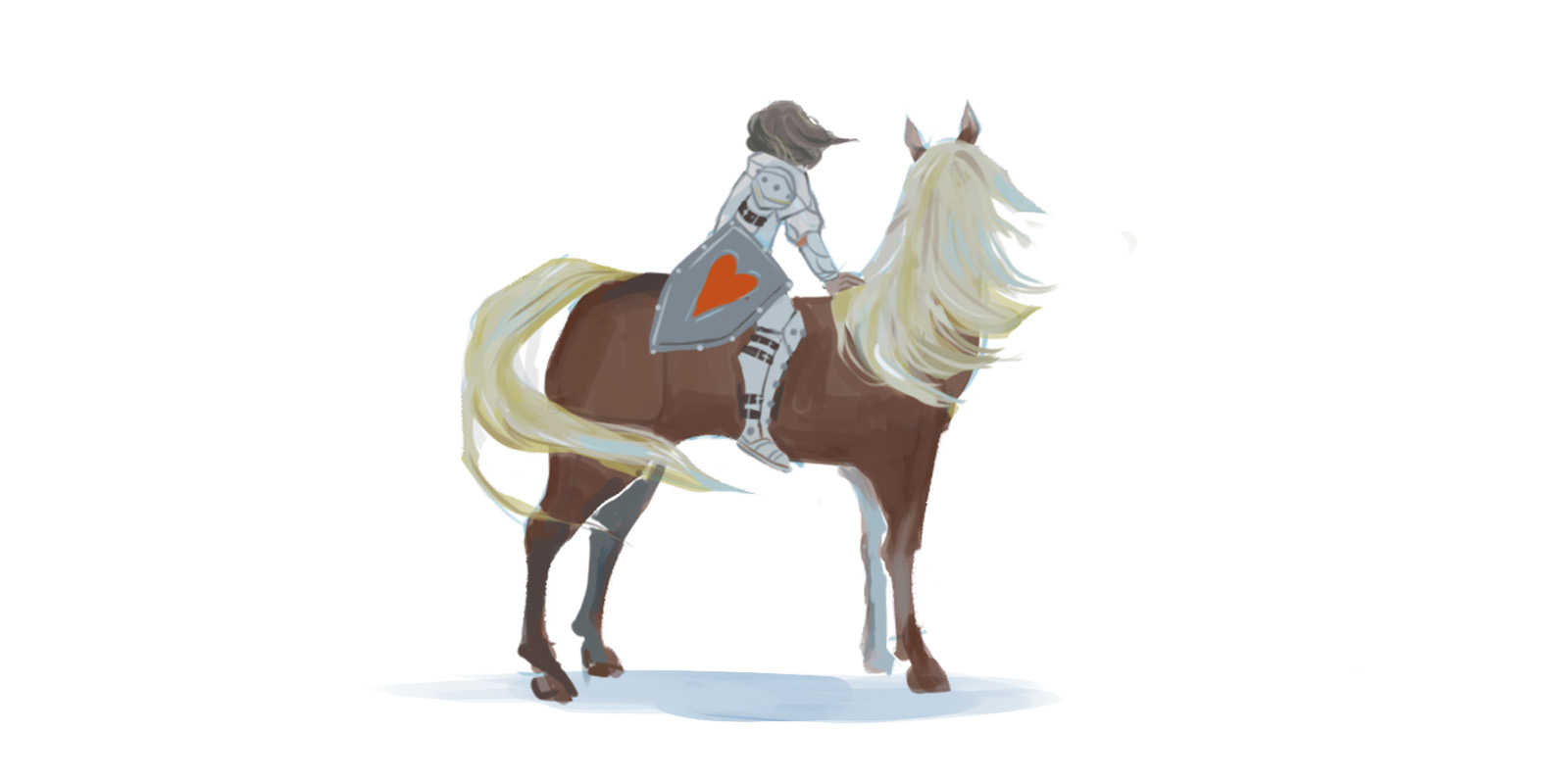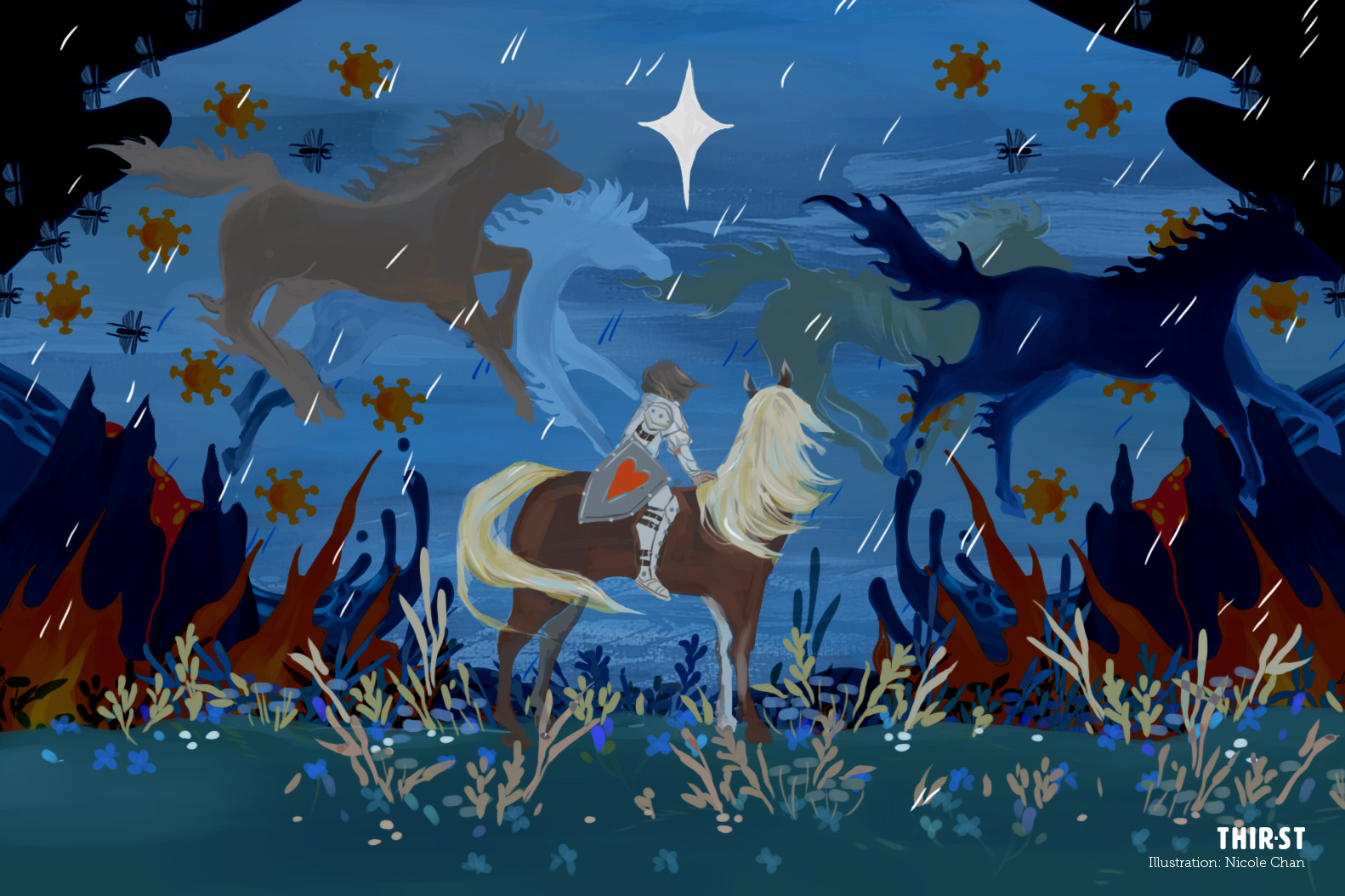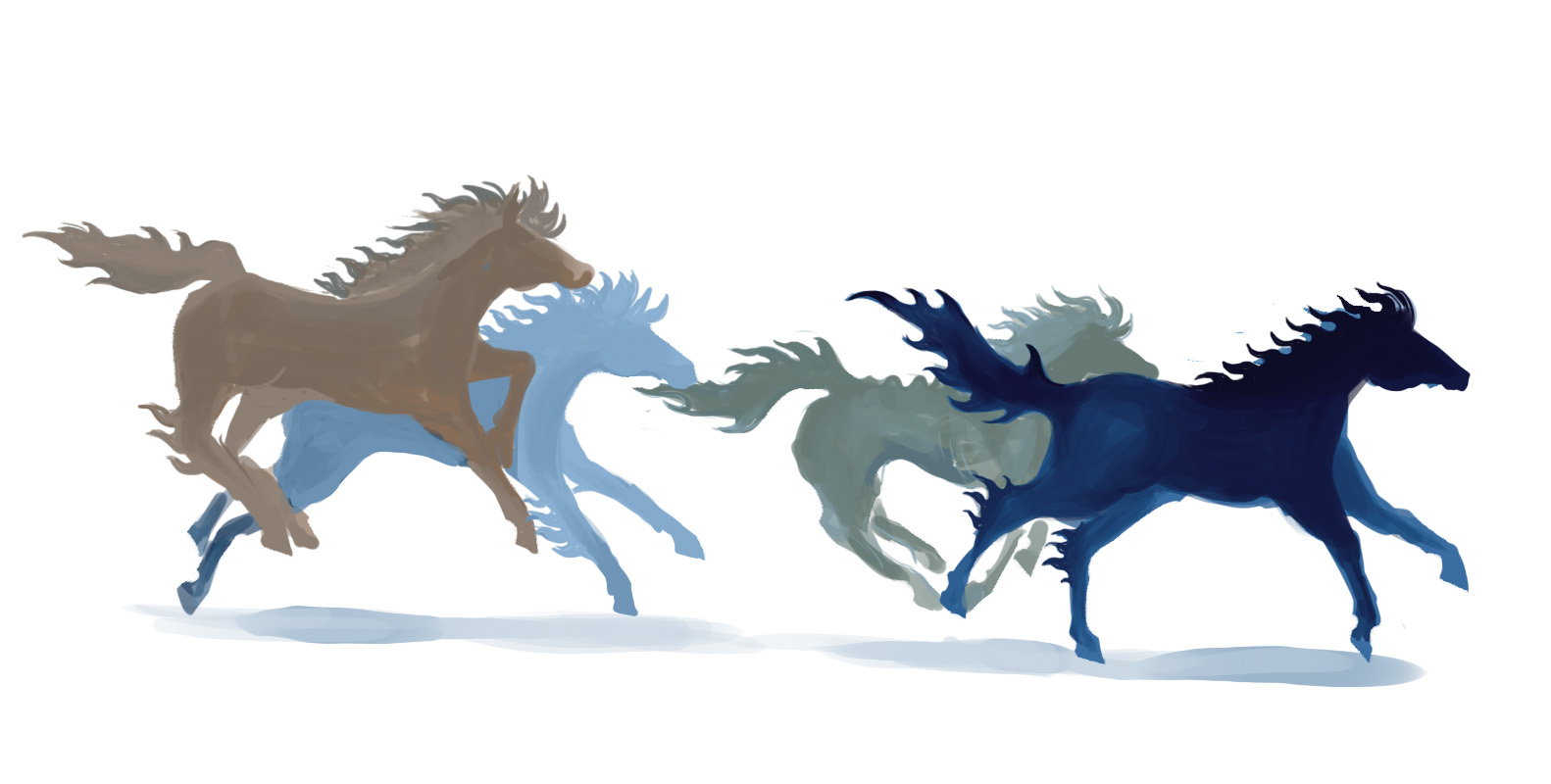It’s been every kind of storm. A biomedical storm. A media storm. Now even a supermarket storm. But in the eye of the global frenzy stirred up by COVID-19, I’ve recently found myself taken by an entirely different interest: cheerleading.
As our side of the globe clambers over each other to grab that last lot of toilet paper (or bag of rice, or packet of maggi mee), the trending Netflix show Cheer features a group of American teenagers stacking themselves in dangerous formations to hopefully bag their 14th national cheerleading championship. Fascinating, both are.
You’re probably on the verge of clicking through to something that actually matters to the national crisis at hand, but stay with me as I share what’s been on my heart for the latest challenge 2020 has so coolly served up, following the already overwhelming news of unquenchable fires, hoards of locusts, volcanic eruptions and floods.
Nothing. That’s what I’ve been feeling. Eerily nothing, which is unusual for what admittedly looks like the end of the world.
Like I said, it’s like sitting in the eye of a storm.
Just a few days before Christmas last year, I gathered my cell group for one final session over some good chicken rice before we closed 2019. It had been one of the saddest ends of the year for me, personally, and our last lesson naturally arose from this place in my heart.
“Guys, how can we build spiritual resilience for the coming year?” I asked, as the chicken on the plate dwindled. “Even if it feels like things are fine now, life can throw you some of the most unthinkable curveballs that can really threaten to wreck your faith.
“How can we prepare for that?”
Resilience is the learned art of being scared but not shaken, knocked down but not out.
They looked at me, unsure. Trying to help the discussion along, I told them the story of our church friend’s mother, who had earlier that year come down with an unexpected heart condition, which shockingly led to the amputation of both legs to save her life.
“What would you do if that were you?” I prompted. “How would you face God if something terrifying and unexplainable happened to you?”
Looking back today, my question couldn’t have come at a better time. It was what was keeping me going despite the pain, what I wanted my cell members to learn, and what we need now more than ever: Resilience.
As cheerleading coach Monica Aldama of Cheer described her greatest fear, you can rehearse a million different scenarios and something totally unpredicted can still go wrong during the actual competition. All you can do is thus train the team to respond well, get back up and push through. Resilience.
When I closed my eyes and asked God why my spirit had been so silent in these troubled times, it was the one word that surfaced: Resilience. The learned art of being scared but not shaken. Knocked down but not out. And in the language of the Bible, to take heart, even when everything is falling apart.

Before Joshua succeeded him as leader of the Israelites, Moses encouraged him to take heart (Deuteronomy 31:6, Joshua 1:6). When David faced inner and outer torment throughout his life, he often exhorted himself at the end of his psalms to take heart (Psalm 27:14, Psalm 31:24).
Even Jesus, speaking of the difficulties his disciples will face, declared these well-known words in John 16:33, “In this world you will have trouble. But take heart! I have overcome the world.”
Take heart was all I could do when half my face was paralysed by Bell’s Palsy without guarantee of ever returning. Take heart was all I could do when my heart was broken soon after I got better, by the last person I ever thought would.
Honestly, taking heart has been a great part of my journey of faith, especially in the last few years, and it has proven to be the simplest yet hardest thing to do in the face of the unknown.
But therein lies the secret, I believe, to building the resilience we need to stand firm in these tough days (Matthew 24:13). To train up a faith so flexible, so strong, so enduring for whatever else may come our way by taking heart, over and over again. And this is where the lessons of Cheer come into play.
BUILDING IMMUNITY FOR UNCERTAINTY
1. Resilience is a faith that is flexible
“We need faith that stretches like a net when something heavy drops into it,” I told my cell group that day. “And to keep something stretchy, it needs to be used often.”
In Cheer they call it “getting your splits”, where cheerleaders have to train their legs to stretch for all kinds of splits, conditioning them regularly and warming up before practice for maximum flexibility. Apparently, anyone can get their splits, if you’re diligent enough to work on them. And it’s the same with faith.
A faith that is flexible can withstand the shock of the unexpectedly heavy curveballs of life. A faith that is not risks snapping and breaking immediately under sudden stress, like a net that has been weathered by unuse, or muscles that are suddenly stretched in ways they have not been.
For the equivalent of “getting your splits” in terms of faith, we need to actually exercise it as much as we can.
One of my favourite quotes is: “The opposite of faith is not doubt, but certainty.”
If there’s no stretch, you’re not exercising faith. If you always want to be in control and aren’t consistently making choices of faith to roll and flow with the Spirit, you’re not working on your splits.
And when the unexpected finally happens, which it will, as even Monica points out, there’s only so far your faith will take you until it breaks into fear.
2. Resilience is a faith that is strong
There are two main kinds of strength in a cheer team – personal strength and interpersonal strength.
Building personal strength, such as physical and mental strength, comes with the disciplines we expect, the same way building spiritual strength requires discipline in studying and meditating on the Word and cultivating a strong prayer life.
But interpersonal or relational strength is as important, and this can only grow with trust between team members.
The cheerleaders not only had to work on their physical strength, they also had to work on their team bonds so that those being carried, thrown and caught would be able to do so fearlessly. Whenever the Cheer team dropped anyone, everyone had to do push-ups to make up for it together.
So while it’s important to know your Scripture and make it through your prayer lists, we need to know Who we are doing this with and how much we can trust Him.
This kind of knowing isn’t just in the head but in the heart, and like in any other relationship, only comes with experience, deep conversation and time spent together. As another saying goes: “Know God, know peace. No God, no peace.”
Going back to that net analogy, a good net isn’t just flexible but also strong, able to take both the intensity and immensity of the unexpected. Such faith can sleep in the storm, no matter how sudden or strong it is, knowing with absolute certainty that the One who holds us will never let us down.
3. Resilience is a faith that is enduring
Right at the start of Cheer, we’re informed that the cheerleading team has won the national championships 13 times and are now going for their 14th title. All six episodes then document their journey to Daytona Beach, where the competition is held. Every once in awhile, there is a countdown flashed across the screen for the number of “days to Daytona”, which is basically how many days they have left to train.
As you can imagine, the athletes featured in the show weren’t just dangerously flexible or strong – they also had shocking levels of stamina. Training for hours a day, months on end to not just get their routine right but to be virtually “unable to get it wrong” was exhausting enough to watch. And when anyone got hurt, they rarely tapped out, preferring bandages and athletic tape to sitting on the sidelines.
It’s only halfway through the second month of 2020, but it feels like we’ve been going for a long, long time.
Even just these past few days have felt like an entire year, with breaking news every hour on the latest coronavirus-related updates or something equally unpleasant elsewhere in the world. Many of us have probably felt like tapping out (especially when many were checking out at supermarkets last weekend).
But like Monica’s competition routines, things may not get any less complicated in the days or years to come. There will always be new challenges to arise to and deeper valleys to climb out from. We don’t know what news awaits us or whether the storm will arrive at our doorsteps tomorrow.
But here’s how we can build a faith that holds up for the long run: replace your “what-ifs” with “even-ifs”.
Even if we get the coronavirus. Even if someone we love does. Even if the supermarket runs out of supplies. Even if we suffer great loss. Even if the world ends today, we will still take heart and trust in the Lord. We will still choose hope.
This is what the faith was always about: No tapping out, no turning back. We will not tire of taking heart.
- How have you been doing in this current climate of national affairs?
- Which area of spiritual resilience do you need working on?
- How can you strengthen that aspect of resilience, be it flexibility, strength or endurance?
- Commit to practical ways you can exercise faith in the days to come.










